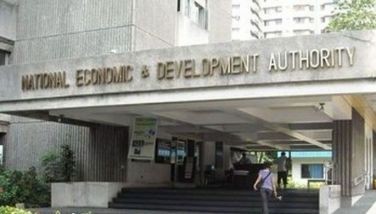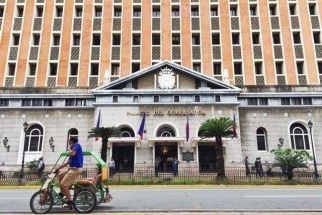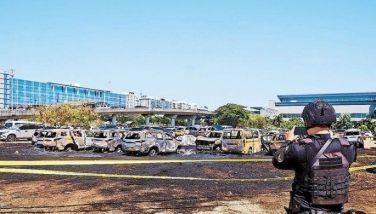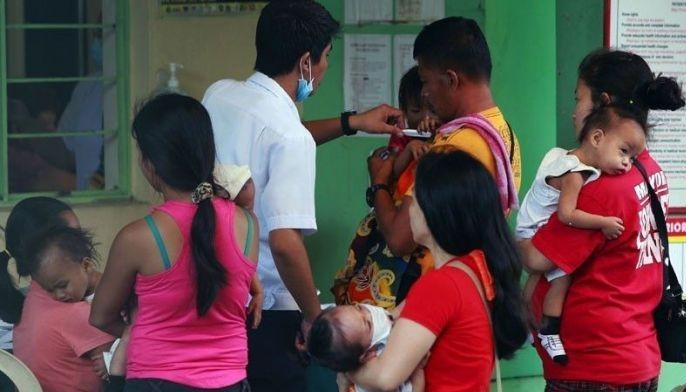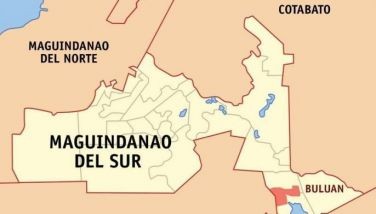US does not recognize China air defense zone
MANILA, Philippines - Washington does not recognize China’s air defense identification zone over the East China Sea, visiting US Secretary of State John Kerry said yesterday.
“The United States does not recognize that zone and does not accept it,†Kerry said during a news conference yesterday with Foreign Affairs Secretary Albert del Rosario.
“The zone should not be implemented and China should refrain from taking similar unilateral actions, particularly in the South China Sea,†he said.
He also announced $40 million in new assistance in part to help the Philippines protect its territorial waters amid rising tensions with China even as he urged nations involved to “lower the intensity.â€
The money, from a US program known as the Global Security Contingency Fund, will be spent over three years and will be split between improving the Philippine Coast Guard’s maritime security abilities and boosting counterterrorism capacity for the Philippines National Police in Mindanao, where Washington has also backed a decade-long Philippine government campaign against al-Qaeda-linked local militants.
The new aid is intended to complement a $32.5-million assistance package, which Kerry announced Monday in Vietnam, that will help Southeast Asian nations protect their territorial waters. Up to $18 million of that money will go to provide the Vietnamese Coast Guard with five new fast patrol boats.
Both Vietnam and the Philippines have competing claims with China over territory in the West Philippine Sea and South China Sea and are concerned with growing Chinese assertiveness after Beijing’s unilateral declaration of the air defense zone.
“China, in doing this, effectively is attempting to transform an air zone into its own domestic airspace, and we think that this could lead to compromising freedom of flight, in terms of civil aviation, and also compromise safety and security of affected nations,†Del Rosario said.
If China establishes an air defense zone in the West Philippine Sea or South China Sea, Del Rosario said, “that for us will be a problem.â€
Kerry urged all parties to “avoid provocations†that could potentially escalate into conflict. “We should be long past the time of unilateral assertion and the use of coercion to back up that assertion,†he said.
Kerry stressed the need for negotiated resolutions to the disputes.
“The United States will stand with our friends in this region who are asserting their efforts through that kind of legal, peaceful process,†he said.
“I hope that ultimately the leaders in China will see the wisdom of engaging,†he added.
Press Secretary Herminio Coloma Jr. said Kerry’s visit to Manila provided a chance for the Philippines and the US to broaden cooperation on various fronts – from trade to security cooperation, diplomatic ties, to humanitarian and disaster response cooperation.
“The visit presents an opportunity for the two countries to discuss the broadening of economic and security cooperation, strengthening of people-to-people ties and humanitarian assistance and disaster response and cooperation on regional issues,†Coloma said.
Kerry was scheduled to pay a courtesy call on President Aquino at Malacañang.
The Philippines lost control of Panatag Shoal last year after a standoff with China. The US is also helping equip the Philippines with ships and radar, and is also in negotiations with Manila to increase American military presence in the country.
However, officials have stressed they have no plans to reopen former military bases.
Kerry’s announcements in the Philippines and Vietnam are almost certain to anger Beijing, which bristles at what it sees as US interference in areas it views as China’s “core interest.â€
Beijing looks dimly on Washington’s push to increase US military presence and strengthen its alliances in Asia as it ends a decade of war in Iraq and Afghanistan, calling it an attempt to contain China.
In a reminder of the high stakes in play, US and Chinese naval vessels came close to colliding in the South China Sea on Dec. 5, the most serious incident between the two navies since 2009.
The US Pacific Fleet said Saturday that the USS Cowpens was operating in international waters and had to maneuver to avoid hitting China’s lone aircraft carrier.
The Liaoning, a symbol of China’s ambition to develop a navy that operates farther from its own shores, only entered service last year and was on its first sea trials in the South China Sea.
Beijing has not formally commented on the incident, but the state-run Global Times newspaper reported Monday that the US ship had first harassed the Liaoning and its group of support ships, getting too close to a Chinese naval drill and entering within 30 miles of the Chinese fleet’s “inner defense layer.â€
As China expands its navy’s reach and starts to challenge decades of American military predominance in the region, it is becoming more common for vessels of the two nations to operate in close proximity.
The Obama administration has made it a priority to seek closer military cooperation with China to prevent misunderstandings that could spark a clash – part of a broader push to foster friendly ties between the established world power and the emerging one.
Beijing’s declaration of the East China Sea air defense identification zone was a setback, and has ratcheted up tensions with Japan over disputed islands within that zone. All aircraft entering the zone must notify Chinese authorities beforehand, and China has said it would take unspecified defensive measures against those that don’t comply.
The US, Japan and South Korea have said they will not honor the new zone, and in a show of defiance soon after China announced it, the US flew two B-52 bombers through the area.
Kerry is in the Philippines on the last leg of a trip to the Middle East and Asia. Before heading for home today he will visit Tacloban, which was hard hit by last month’s Super Typhoon Yolanda.
The US was a major contributor of relief after the disaster and Kerry is expected to announce additional support during a brief inspection tour of the storm-ravaged area.
He called off his original scheduled visit to the country in October due to the threat of another typhoon before Yolanda. AP, Delon Porcalla
- Latest
- Trending














